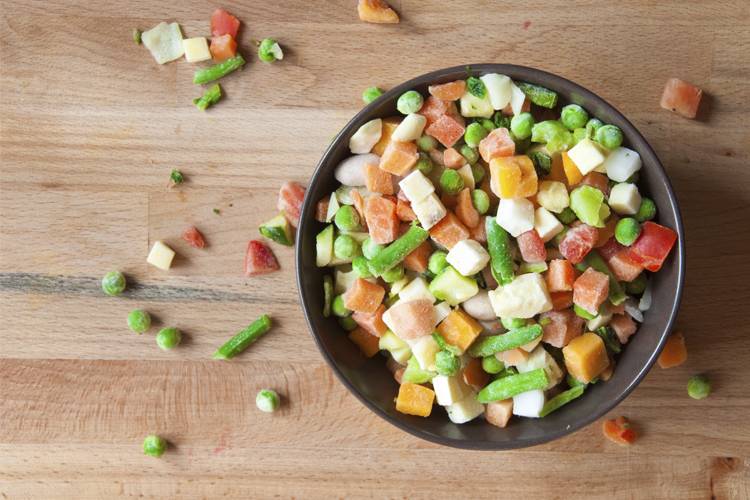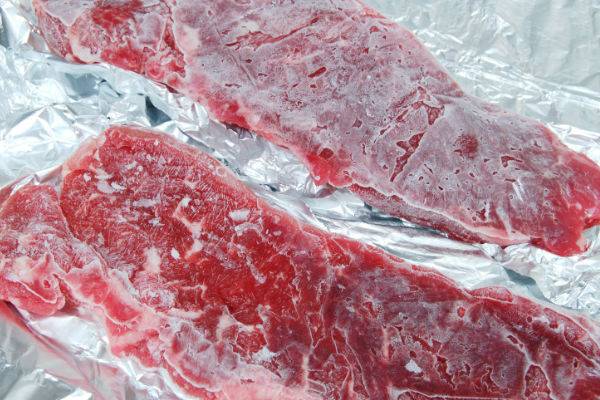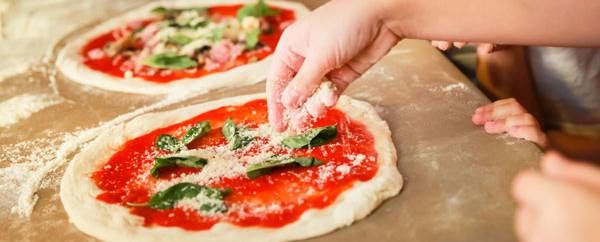How long does food last in the freezer before spoiling?
The freezer is a great ally for families who have little time to cook or go to the supermarket frequently. However, it is not a trunk in which we can store food then defrost it without taking into account how long it has been there. Frozen food also has an expiry date and you need to know the maximum shelf life for each food to avoid any nasty surprises.
TRIED AND TESTED
Share

The freezer has become essential in any home. It is necessary not only for those whose daily hustle and bustle prevents them from going to the supermarket regularly, but also for those who have little time to cook and prefer to make more and save it, or those who survive on a diet based on Tupperware dishes filled with their mother’s home-made food. The freezer also helps us to be more sustainable, as it helps reduce food waste. However, sometimes on opening the freezer door we are filled with doubts. Can I eat the bread I froze three months ago? What can I do with the fish stock that has been stored for more than five months in the freezer? And what about that hamburger I have found at the bottom of the drawer and that may have been there for over a year?
The freezer also helps us to be more sustainable, as it helps reduce food waste
We cannot store food in the freezer indefinitely. If we want them to retain all of their organoleptic qualities, the process of freezing and defrosting food should follow certain indications. Excessive time in the freezer can not only affect the taste, smell and colour of the food, it can also be the cause of food poisoning. But not all foods can tolerate the same conditions without losing quality.
Meat
Meat is probably one of the foods that takes up most space in freezers. It is not advisable to preserve veal and lamb for over 9 months when they have not yet been cooked. Pork tolerates less; 6 months if it is raw and a maximum of one year if it is cooked. With regard to white meat, we can keep turkey and chicken for up to 12 months provided that it has not been diced. If we store it cut up, the time is reduced to 9 months. Sausages should only remain frozen between one and two months.
Fish
If we are talking about fish, we must differentiate between two types: lean that lasts up to 6 months and oily that should only be kept for 2 to 3 months. If the fish is cooked, the time is extended to 6 months, whereas if it is smoked, this is only two. Take care with molluscs, because they last very little time before spoiling. Two months should be the maximum preservation time.

Fruits and vegetables
Fruits resist well in the freezer. Apricots, plums, strawberries, blueberries, raspberries and figs can last up to one year, but if we are talking about citrus fruits, this time is reduced to three months. Fruits with a stone are better frozen in parts, without the stone or even in the form of compote. With regard to vegetables, they can remain frozen from 8 to 12 months. If we have frozen vegetable stock, we should not keep it there for more than two or three months.
Cooked dishes
Storing Tupperware dishes with leftovers in is a well rooted tradition in our country. As they are cooked, these dishes can last from two to three months in the freezer. Soups, purées, creams and sauces last up to 4 months.
Bread
The bread that we have left over from the day is another of those foods that many families tend to freeze. Frozen bread lasts approximately three months, but its duration time also depends on how we have frozen it. In order for the bread to preserve its taste and freshness during the time spent there, we should wrap it in plastic bags that are suitable for the freezer.
Dairy and eggs
With dairy or egg-based products we have to be careful. Cheese will very much depend on its type; fresh barely lasts a month whereas cured can last 6 months. In terms of eggs, although it is not very common to freeze them, it can be done. To do this, however, they must be stored out of the shell. We can freeze them by separating the white and yolk, beating them or by simply opening them into a bowl. In this way, they can be preserved for up to 6 months.
FREEZE CORRECTLY To carry out the freezing process correctly, we must store fresh foods in plastic containers or polythene bags intended for this purpose, ensuring that they are always well closed to prevent the cold from coming into direct contact with them. If this is not ensured, "freezer burn" will occur. These typical patches often appear when we freeze foods by wrapping them in cling film or tin foil. To have no doubt about the date we have stored each food in the freezer, it is advisable to label each bag with the date on which it was frozen. | ||







